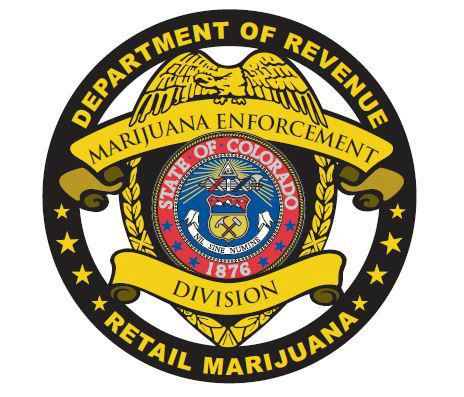Colorado’s cannabis retailers forbidden to sell hemp-derived delta-8 THC

Sales of hemp-derived delta-8 THC – an up-and-coming cannabinoid with subtle psychoactive effects – have been officially banned in the cannabis-friendly State of Colorado.
The news comes about after a letter was sent to Colorado’s cannabis dispensaries by the state Marijuana Enforcement Division (MED) on Friday, May 14.
Tasked with licensing and regulating the medical and retail cannabis markets in Colorado, the MED raised safety concerns regarding the D-8 compound, which is acknowledged as an isomer of the more well-known type of THC — delta-9 THC.
Scientists have discovered that this cannabis compound – which has a similar chemical structure to THC – possesses antiemetic, anxiolytic, orexigenic, analgesic and neuroprotective properties.
Colorado has joined a number of other U.S. states that have also introduced bans on Delta-8 THC. Those states are as follows:
- Alaska
- Arkansas
- Arizona
- Delaware
- Idaho
- Iowa
- Mississippi
- Montana
- Oregon
- Rhode Island
- Utah
Various other states are also considering implementing a ban on Delta-8 THC sales.
What sets Delta-8 THC apart from traditional THC is the fact that it can be extracted from the non-psychoactive cannabinoid CBD (cannabidiol) and industrial hemp, before being combined with acetic acid to complete its transformation.
Numerous D-8 producers have contested against the MED’s decision, with many stating that the product is legal as per hemp provisions laid out in the 2018 Farm Bill. This particular measure legalized hemp extracts and hemp-related products.
Colorado bans Delta-8 THC: About this type of THC
There are several different isomers of the psychotropic mind-altering substance tetrahydrocannabinol (THC). Isomers are molecular compounds that comprise the same number of atoms of specific elements, but that also possess unique atomic arrangements.
Delta-9 THC is the isomer most abundantly produced by the cannabis plant, which remains illegal at the federal level in the U.S. Notwithstanding its legal status, scientists have managed to find different types of THC that can also induce feelings of intoxication.
Despite efforts to remove Delta-8 THC from the shelves of cannabis retailers across the country, the Controlled Substances Act (CSA) does not prohibit D-8, nor does it prohibit a synthetic isomer of THC known as Delta-10 THC.
Consumers of these compounds may still fail a drug test. However, as a legal gray area, certain loopholes have made it possible for retailers to turnover profit by selling D-8 online, as well as inside a handful of independent retail outlets that are not MED-regulated.
Colorado’s Q1 retail cannabis sales see 28 percent growth from 2020
Recreational and medical cannabis retailers in Colorado have continuously managed to meet sales milestones. Based on the latest sales data published by the Department of Revenue, statewide adult-use and medical cannabis stores logged $561.7 million in sales during the first quarter of 2021.
These figures demonstrate a 28 percent increase from the $438.8 million that was generated by Colorado’s cannabis retailers in 2020.
That works out as follows:
- $453 million in recreational cannabis sales revenue for Q1 of 2021 – an increase of 29 percent from the $351.8 million that was accrued during the same period last year.
- $108.7 million in medical cannabis sales revenue for the first three months of 2021 – an increase of almost 25 percent from the year prior.
Moreover, during Q1 of this year, Colorado’s adult-use and medical cannabis retailers met the following monthly sales records:
- Total cannabis sales revenue exceeded $207.1 million in March. Comparatively, revenue amounted to $161 million at the same time last year.
- Total cannabis sales revenue totaled $187.6 million in January. Comparatively, revenue amounted to $139.1 million during the same month in 2020.
- Total cannabis sales revenue surpassed $167 million in February. Comparatively, revenue amounted to $138.6 million during the same month in 2020.qq
To sum up, Colorado managed to exceed $10 billion in total sales since its recreational cannabis program kicked off in January 2014. Such figures tell us that, in spite of the MED’s decision to ban Delta-8 THC, the state’s well-established industry is positioned to keep growing.







